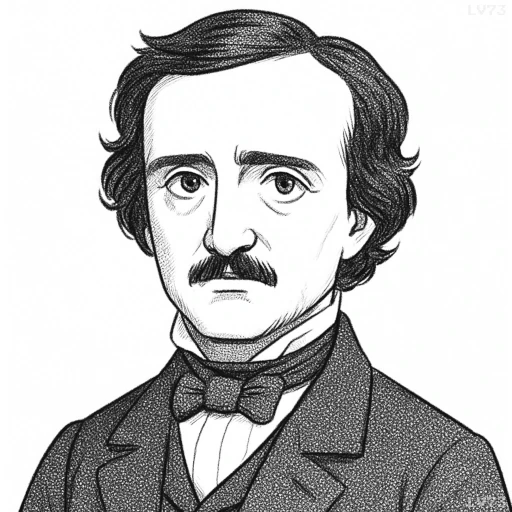“Science has not yet taught us if madness is or is not the sublimity of the intelligence.”

- January 19, 1809 – October 7, 1849
- American
- Novelist, poet, critic
table of contents
Quote
“Science has not yet taught us if madness is or is not the sublimity of the intelligence.”
Explanation
In this quote, Edgar Allan Poe delves into the complex relationship between madness and genius, questioning whether mental instability might be a form of elevated intelligence. Poe suggests that science, at the time, had not yet provided a definitive answer to the paradox of whether the extremes of the mind, particularly madness, could be connected to a higher form of understanding or creativity. The idea that insanity could be linked to sublime intelligence reflects Poe’s fascination with the borderline between genius and madness, a theme that frequently appeared in his works, where the mind’s dark recesses often gave rise to profound insight, as well as self-destruction.
Poe was deeply concerned with the fragility of the human mind, exploring the fine line between reason and insanity in many of his works. His own experiences with personal loss, mental anguish, and the limitations of 19th-century psychology might have contributed to his exploration of whether madness could be a condition of heightened mental or creative ability. During Poe’s time, psychological science was in its infancy, and mental disorders were often misunderstood. The Romantic era, to which Poe belonged, placed great value on individual experience and emotion, sometimes viewing madness as a form of profound insight rather than something purely negative.
In modern terms, this quote resonates with current debates in the fields of psychology, neuroscience, and creativity. The connection between mental illness and creativity is still a topic of interest, with many studies suggesting that individuals with certain mental health conditions—such as bipolar disorder or schizophrenia—may exhibit higher levels of creativity or divergent thinking. Poe’s quote challenges us to consider whether madness can be a form of brilliance, and whether we fully understand the connection between mental health and intellectual or artistic expression. In this context, the quote also reflects the ongoing conversation about how we perceive and treat mental health today, recognizing that mental struggle and creative genius can sometimes be intertwined in ways that are still not fully understood.
Would you like to share your impressions or related stories about this quote in the comments section?


